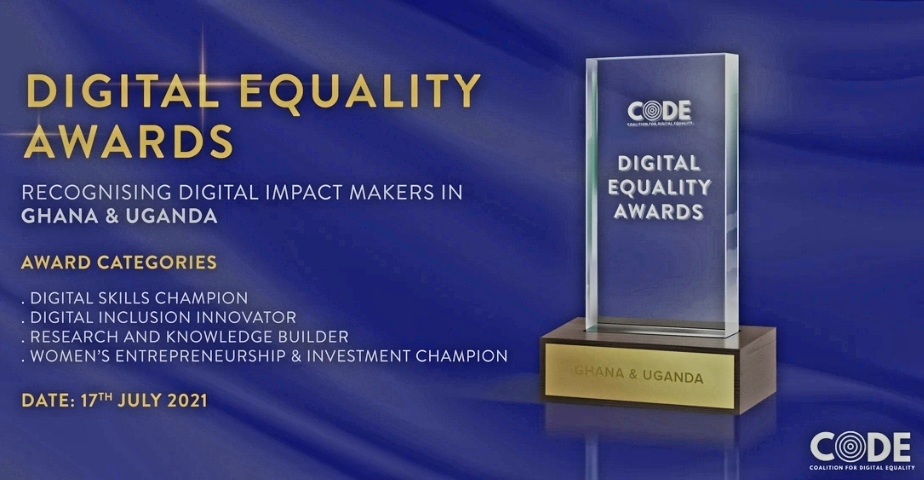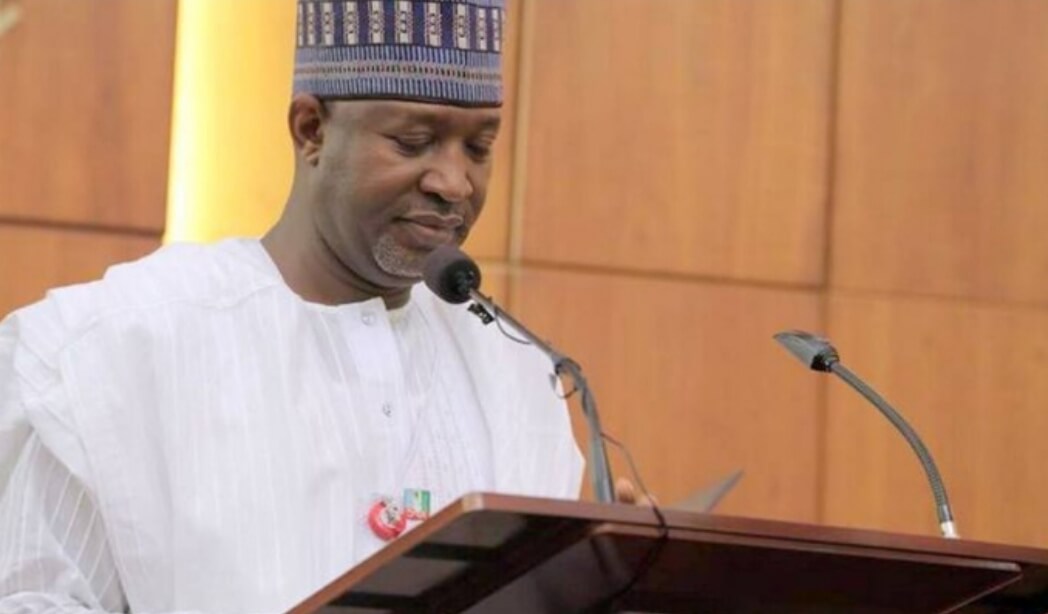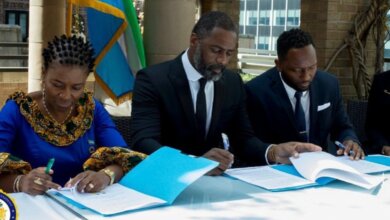

MANDEL NGAN/AFP/GETTY IMAGES
Trump Presidency: Africa and indeed the rest of the world followed, with very keen interest, the 2016 USA Presidential elections. While the polls and political pundits gave Hillary Clinton, the democratic candidate a lead over Donald Trump and a fair chance of winning the elections, his unusual campaign style and utterances seemed to suggest that the Republican candidate was setting himself up for an obvious defeat. Notwithstanding the pro Clinton predictions, there were still anxieties in some quarters that a Trump presidency could be in the making.
The outcome of the elections and the reality of a Trump Presidency has had a profound impact on international politics and especially for Africa.
Never before since the end of the second world war, has an American President been elected on insular populist agenda and a restricted world vision. Africa did not feature in the Trump presidential campaign except when it was tangentially mentioned and most times within the context of his policy on immigration or in the fight against terrorism. In either case, the implied reference to Africa had a negative slant to it, as being part of the dangers faced by the USA.
The policy of the Trump Administration towards Africa remains opaque to leaders and observers. Aside from the visit of President Abdel Fattah El – Sisi of Egypt and the brief telephone calls to Presidents Muhammadu Buhari of Nigeria and Jacob Zuma of South Africa, not much interaction and engagement has happened between African leaders and President Trump. Africa remains, it would seem, at the bottom rung of the Administration’s priorities. Nothing underscores the Administration’s attitude to Africa than the fact that of the six countries listed in the Executive Order Travel Ban, three –Libya, Sudan and Somalia – are African countries.
Africans – Leaders, Entrepreneurs and scholars – are worried about the absence of a discernable policy on Africa and wonder how this will play out, in the long run, in the conduct of the US foreign policy in the life of the Trump presidency. This concern is further amplified by the fact that no discernable policy on Africa has been mooted, envisioned and/or is being crafted by the Trump Administration. An incoherent policy on Africa could adversely affect President Trump’s global fight against terrorism, which he has vowed to win. The role and contribution of Africa is part of the winning strategy in the campaign against terrorism and this fact should not be ignored or downplayed by the Trump Administration.
The administration recognizes that fact that ISIS cells are presently located in Libya and this has informed the travel ban on Libyans. As ISIS suffers military defeat in Raqqa – Iraq, they will be forced to seek new strongholds elsewhere. Libya seems to be the obvious choice. The political disorder in Libya offers ISIS the cover and space they need for their operations. Libya is the source of small arms and light weapons and supplies for the terrorist group Boko Haram which has held sway in the North Eastern part of Nigeria.
The Al-Shebaab terrorist group are in the East and Horn of Africa from where they carry out terrorist activities across Kenya, Sudan and Somalia. It is of extreme importance that the two groups – Al-Shabaab and Boko Haram, both of which have pledge allegiance to ISSI – are prevented from linking up through the Central Africa corridor and posing grave threat to regional peace and security.
The preferred policy option, in addition to the travel ban, would be to engage African governments and to strengthen their capacity to deal decisively with these terrorist groups. The USA should be in the vanguard of this diplomatic overture and engagement of Africa. This approach should be a multifaceted effort encompassing, military–training, sharing of intelligence and collaborative efforts in: political, economic, humanitarian cooperation with Africa. This comprehensive engagement approach will ensure that the continent does not become a new haven for ISIS or source for recruiting disgruntled youths into the Islamic terrorist groups.
The Trump Administration should not see Africa as a basket case hobbled by inept governments and corrupt leadership. Perhaps, for the sake of clarity, it will be of interest to highlight the issues at the heart of Africa’s developmental challenges.
The overarching political need is to enthrone democratic governance anchored on strong democratic institutions with strict adherence and application of the rule of law, as well as, respect for human rights. Good and accountable governance is at the heart of Africa’s political problems and the leaders of the free world especially the USA cannot afford at this, point in time, to be ambivalent to the process of strengthening the fledgling democratic institutions of governance in Africa.
It is equally important to underscore that Africa has a youthful population and that more than 60% of its one billion population are under age 35. About half of this youthful population are unemployed, living in squalor, hunger, poverty and disease. These impressionable and unemployed youth have become increasingly vulnerable to radicalism and extremism and have become the main source of recruits for the terrorist groups. The nexus between poverty, unemployment and illiteracy and terrorism must not be ignored. Lifting the teeming unemployed African youths from poverty, squalor, disease and hunger is an enlightened self-interest policy option for the USA under President Trump to pursue.
Economic development is also central to the needs of Africa. The infrastructural deficit – power, road, rail, airports, sea ports and canals, require massive inflow of Foreign Direct Investment (FDI) As the Trump administration pursues with vigour its insular policy of “America first” – it leaves a yawning void at the world stage which is being filled by the Chinese. China has in the last decade become Africa’s most important trading and investment partner. Available statistics show that Chinese investment inflow into Africa has grown from $10 billion in USD in 2000 to $166 billion USD in 2011. It seemed difficult to conjecture, yet true, that it was the Chinese President Xi Jinping, who was the advocate, at the 2017 World Economic Summit in Davos Switzerland, for global free trade and open access to global markets. That the USA under the Trump administration is voluntarily relinquishing its leadership position as the chief advocate of free market in preference for an insular America remains difficult to comprehend.
The Trump administration’s disavowal of Climate Change and the threat to withdraw support for the COP – 21 Paris Agreement brokered with the active support of the Obama administration will further hamper the capacity for sustainable economic growth and development in Africa. The ravages of Climate Change – desertification, soil erosion, draught and other adverse ecological impact – affect African economic performance and compound their capacities for sustainable growth and development.
Understanding and engaging the Trump Presidency will not be an easy task, especially for African leaders. Most observers are of the views that the complexities of the American global leadership are yet to register on President Trump and that he will, with time, appreciate what is required of the immense powerful office he occupies. President Trump has shown in the 100 days of his administration that he is unpredictable and can do a reversal or policy summersault.
African leaders must therefore learn to deal with President Trump with a different set of tools of engagement. President Obama pressed African leaders to commit to good and accountable governance, rule of law and respect for human rights. At core of this commitment to good governance under the Obama administration was zero tolerance for corruption. The Trump Presidency has not been very vocal on human rights and has not linked human rights observance with American support and cooperation like the Obama administration did. On the other hand, his congratulatory message to President Erdogan following the latter’s victory at the recent referendum in Turkey has been seen in some quarters as indicative of President Trump’s preference for strong leadership over strong and durable institutions.
The road ahead for African leaders as they struggle to understand the Trump administration remains unpredictable. What most observers are agreed on, is the fact that African leaders must embark on some self-help and home-made remedies that will make their countries politically stable and economically competitive to command the attention of the Trump administration. It seems very obvious that a paternalistic – Father Christmas – relationship between the USA and Africa will not be the preferred choice or line of action under the Trump Presidency.
Source: Ambassador Ozo Nwobu; retired Nigerian diplomat / Huffington Post
Oral Ofori is Founder and Publisher at www.TheAfricanDream.net, a digital storyteller and producer, and also an information and research consultant.





